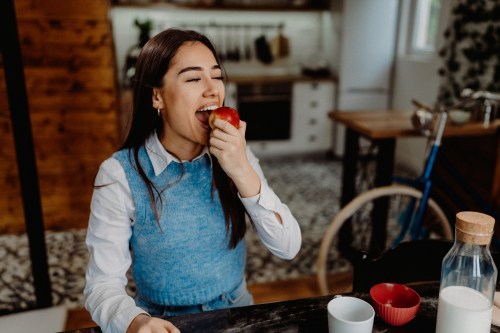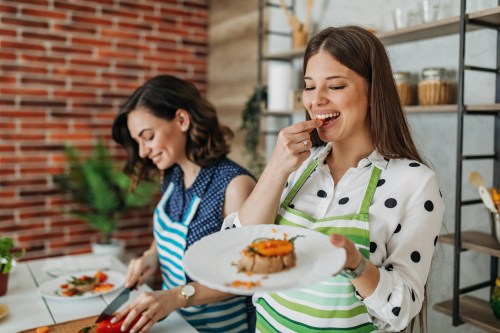Our editors independently select these products. Making a purchase through our links may earn Well+Good a commission
One second you’re enjoying some food from your favorite takeout spot, and the next you’re logging your best running time yet while frantically searching for the nearest toilet. Anyone who’s ever experienced food poisoning—which is caused by food that’s been contaminated with bacteria or other infectious organisms—knows it’s all sorts of miserable. And the recovery process is anything but easy-breezy. Rather, it’s a full-time job looking searching vetting the proper food for upset stomach.
A couple hours after eating contaminated food, the wave of nausea, vomiting, and/or diarrhea hits like a brick. Then as you’re getting over it—which can take days—the sheer thought of food can be traumatic: something you ate just caused you a whole lot of pain, and no one wants to experience round two. Because of that, there are some rules to keep in mind in order to ensure your stomach stays happy.
Once you start adding foods back into your diet, it’s best to go for bland options that are easy for your body to digest.
First, skip out on eating things that can upset your stomach even more—including dairy products, caffeine, alcohol, and anything that’s high in fat or highly-seasoned, says the Mayo Clinic. The Oregon Clinic also recommends avoiding any raw veggies, citrus fruits, or hot or cold beverages, which can also make your symptoms worse. Once you start adding foods back into your diet, it’s best to go for bland options that are easy for your body to digest, such as saltine crackers, bananas, toast, and rice. On top of that, it’s also recommended to replace any fluids you’ve lost by slowly sipping on water, as well as options like apple juice, weak tea, and vegetable broth.
As long as you take things slow and don’t get fancy with your food, your body will be able to get the sustenance it needs to recover. Unfortunately, that means ditching avocados and matcha lattes—at least for a while.
This common ice cream mistake could give you food poisoning. Or, find out which versatile kitchen staple could be a food-poisoning hazard.
Sign Up for Our Daily Newsletter
Get all the latest in wellness, trends, food, fitness, beauty, and more delivered right to your inbox.
Got it, you've been added to our email list.










